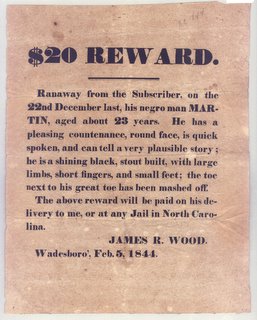Still Enslaved

At first I couldn’t quite place my finger on what I felt was missed as I viewed the documents, the timelines, the videos, re-enactments, etc. But later, I realized that the way the information was presented gave me the impression that slavery here was not that bad. As if it were some unfortunate event that occurred, but look, some of the slaves were eventually able to free themselves...look at what all they accomplished.
On a spring night in 1712, after the moon set, two slaves set fire to a building on the property of back Peter Vantilborough. They then ran to a nearby orchard and joined other slaves who were waiting quietly in the darkness. There wer more than 20 of them, and they were all holding guns, knives, or hatchets. When neighbors noticed the fire and came running to put it out, the slaves attacked and killed nine white people. The governor sent troops to capture blacks thought to be involved. Six slaves committed suicide rather than be taken. Thirty-nine others were charged with the crimes. Mars was one of several blacks charged with killing Adrian Beekman.
This was the first big uprising of slaves in New York. Most of the blacks belonged to the Coromantee or Pawpaw people of West Africa. Most had only been in New York City for a year or two. They were just beginning to understand what it meant to be a slave here. In West Africa, a slave could eventually become absorbed into the owner’s family. When these Africans learned that in New York they would always be slaves, they started planning their rebellion.
The trials began within days, and most were quick. Some people were tried, found guilty, and executed in a single day. Mars’s owner, Jacob Regnier, testified at his trial. He may have spoken in Mars’s favor, because Mars was found not guilty. The Attorney General had an old feud with Regnier, and decided to try Mars again for killing Beekman. Mars was found not guilty at the second trial, too, but the Attorney General was not finished. He ordered a third trial of Mars, and charged him with a different murder. This time, Mars was found guilty and sentenced to be hanged. It was June 7, 1712.
Then Royal Governor Hunter stepped in. He thought the Attorney General was using Mars just to get back at his old enemy, Regnier. The governor issued a reprieve for Mars, and wrote to England for an official pardon. Mars had to wait in jail until the pardon arrived in October, but then his case was finally settled. He was not hanged, and he was returned to Regnier as his slave."Regnier's Mars", New York Amsterdam News, October 7, 2005 - March 5, 2005, p. 6







